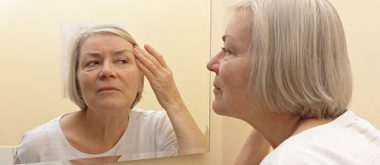We all age eventually, and that aging process can have a number of effects on our health, agility and cognition. In addition to health, aging can also affect our sex life but knowing how aging affects our sexuality can help us understand how we can continue to enjoy these pleasures in life, even in our later years.
Better Sex Life in Older Age
Biologically sex is meant for procreating, but sex in general is something that is meant to be enjoyed even after our child-bearing years are behind us. Believe it or not, sex gets better as we age. Women often experience more orgasms while men gain more satisfaction out of the act. The reason for this is often experience and the intimacy they have enjoyed with their partners over the years. Unlike the fleeting relationships common in our younger years, having sex with the same partner for many years can boost happiness and brings more satisfaction for both men and women. You reap the benefits as you get older in experience and emotional connection.
However, as we age, certain factors begin to set in, and we’re not as efficient as we use to be. While regular trips to the doctor become routine, the sexual problems that are frequent among older adults, are infrequently discussed with physicians. To continue to enjoy sex in your old age, you need to understand what factors affect your performance and how to go about dealing with it.
Sexual Changes in Aging Men
At age 50, a man’s sexual ability begins to dwindle. The major reason for this is andropause, the decrease in testosterone levels. When this happens, men may find it harder to maintain an erection due to decreased hormones and decreased blood flow.

Some men also may suffer from impaired nerve function and less elastic tissue. Increased medication use can also play a negative role on sexual function. All of these issues may then in turn lead to an increase in anxiety when it comes to sexual encounters and limit performance even further.
Sexual Changes in Aging Women
After menopause, women begin to notice a decrease in the hormone estrogen due to the symptoms associated with menopause and post-menopause. This leads too many issues that may reduce their response to sex and sexual pleasure altogether. Vaginal dryness and loss of elasticity, can also lead to increased friction, making sex a rather uncomfortable and formidable process. Medications and post-menopausal hormone levels can also lead to decreased libido, creating an emotional disconnect and lack of desire.
As a result of hormonal changes in both men and women, libido and sexual performance can be negatively impacted. Thus, maintaining proper hormonal levels, having open discussions with doctors about sexual concerns and taking a proactive approach can be key in maintaining a healthy sex life later on in life.
What You Can Do to Keep a Healthy Sex Life
Manage Health Issues. If you have health issues, you need to pay close attention to your body. Health problems like stroke, diabetes, hypertension, and heart diseases are the biggest culprits here, but addressing possible infections, drug interactions, pain or neurological problems is of the most importance. For antidepressant or medication-induced health or sexual problems, speak with a doctor about switching to one that is less likely to impair sexual performance.
Keep Healthy Habits.
Staying healthy later in life can be a difficult task for many. Major health concerns aside, be sure to manage unnecessary stress and depression. Be sure to allow your body plenty of healthy nutritional options and maintain a healthy sleep cycle to put your mind and soul in the right frame.
Use Lubricant.
Often times, and most commonly with aging men, poor sexual performance can be attributed to stimulation needs. Sexual lubricants can make the genitals more sensitive and receptive to touch. In addition, for women, the added lubrication can take away the stress of needing to rely on the body to produce enough moisture to maintain proper friction.
Value Your Fantasies.

Practice Kegel Exercises.
For women who have been pregnant in the past, these exercises may be familiar. These discreet and simple exercises tone the pelvic floor muscles and can ultimately intensify orgasm and strengthen ejaculation. To effectively practice these exercises, the levator muscles are squeezed (the muscles used to start and stop urine flow) and held for five seconds, then released for five seconds, for a number of repetitions.
Communication is Key.
If you notice you’re not enjoying sex or even the thought of the act, as you used to, have a conversation with your partner. Discuss the reasons why you think this is happening and find out ways to salvage the situation. If the issue is beyond an emotional disconnect or lack of spark, be sure to reach out to a doctor, specialist or sex therapist to help you find an effective approach.
Sound sexual health is essential during the aging process for both men and women. With age, sex changes and those once firework-inducing acts can become more like a task of waiting for water to boil. However, even without exploding fireworks, the erotic flames can still burn hot and bright by simple adjustments to the changes that aging brings.





